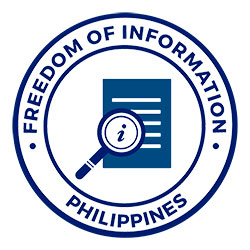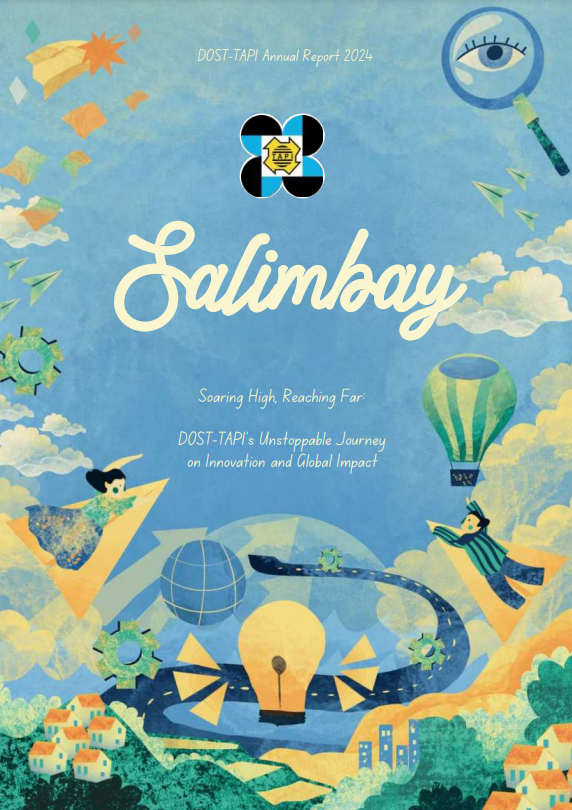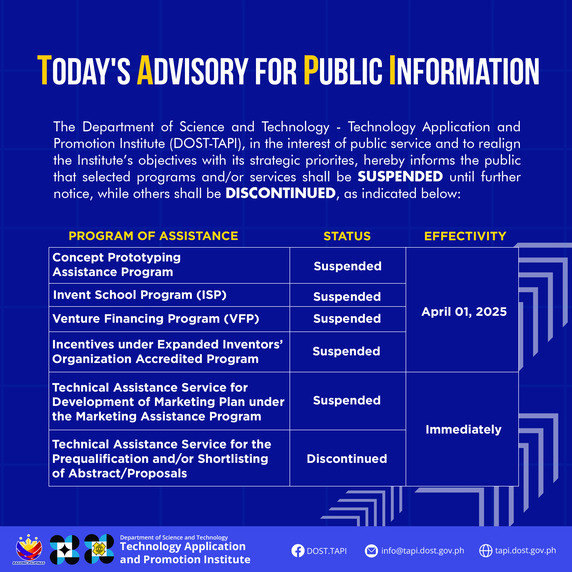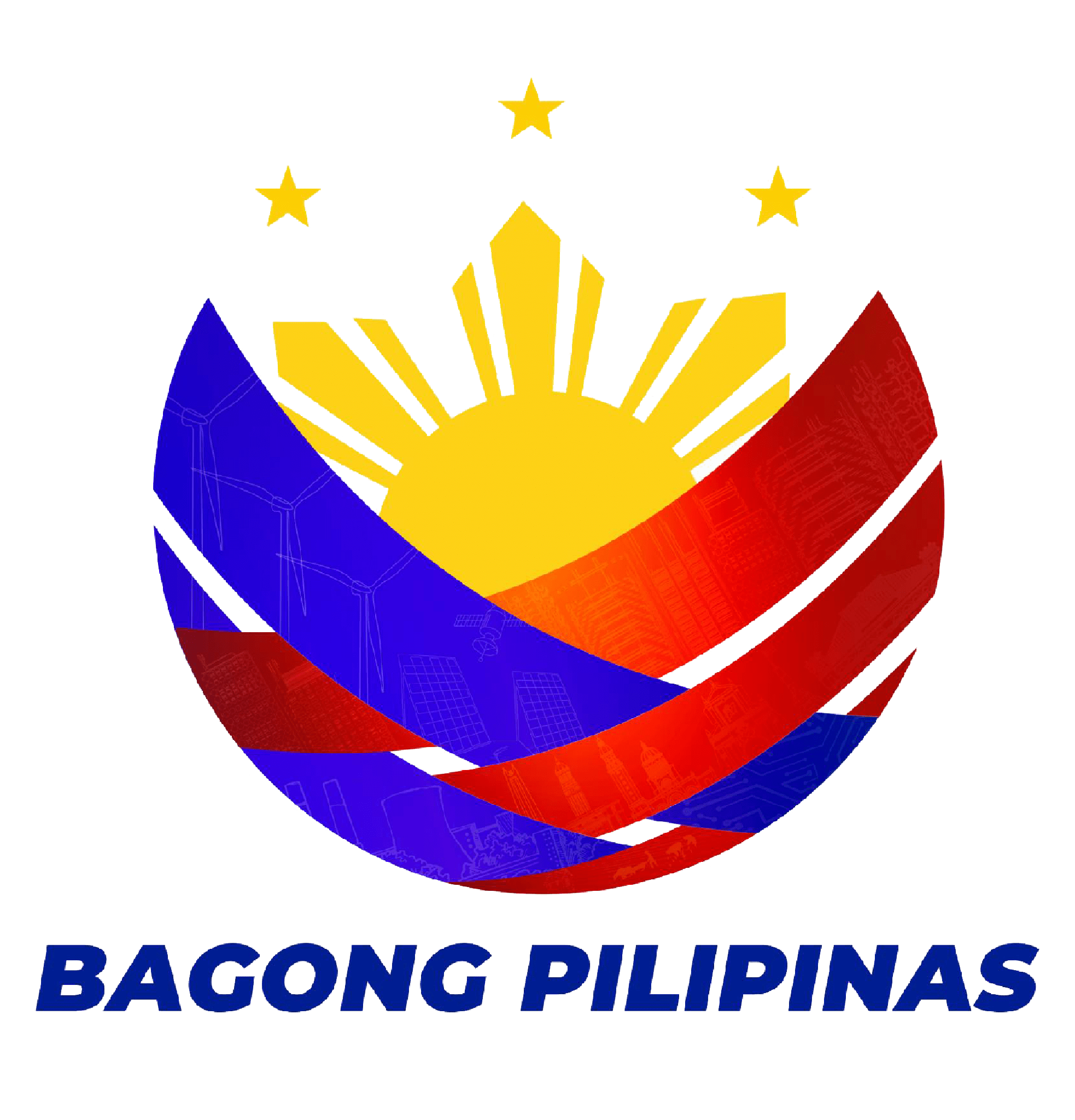By Shane Rachel del Rosario
In the aviation industry where passengers’ safety is a top priority, a Filipino innovator promises to bring greener and safer skies through a sustainable and hybrid aircraft sealant from the waste resin of the Philippines’ Pili Tree. Meet Engineer Mark Kennedy Bantugon, a son of a farmer and a public school teacher, who takes flight by transforming nature’s bounty to groundbreaking and sustainable inventions.
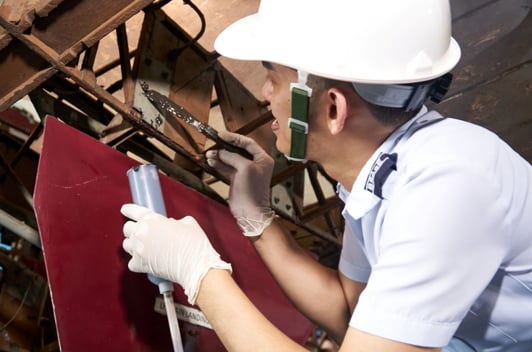
Photo Courtesy: James Dyson Award 2021
From farm to flight
Hailing from the agricultural heartland of Batangas, Filipino aeronautical engineer and material scientist Mark Kennedy Bantugon grew up with ‘dirt on his hands’ and ‘basking in the sunlight.’ He found inspiration in the waste materials of the various plants and trees that he was exposed to as a child.
“I enjoy my childhood years basking in the sunlight on a farm, tilling the fields, engaging with different animals, and immersing myself in nature. I have been exposed to various plants and trees and have learned about their waste materials,” he narrated.
As he gained experience in the agricultural industry, Bantugon was also introduced to extractive-producing plants in his community.
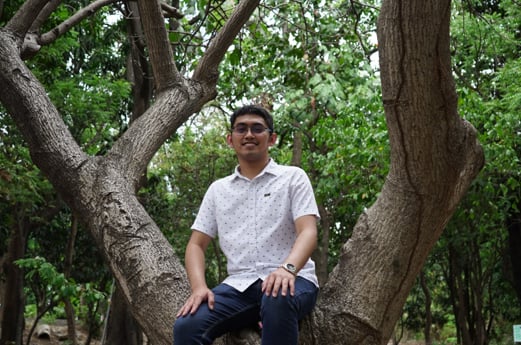
One of which is the Pili Tree, a popular indigenous tree in the Philippines that offers various benefits in industries like food and perfume. For instance, Pili nuts are sought-after delicacies due to their flavor and health benefits. The essential oils of the Tree, meanwhile, are used as fragrant components in popular perfume brands like Gucci and Chanel.
The birth of the Pili Seal
But Engineer Bantugon believes that Pili’s benefits can go beyond these sectors.
Its tree produces raw resin or categorized as an oleoresin, comprising essential oils and waste or spent resin. In the perfume industry, a process called Hydrodistillation separates these two components of the raw Pili Tree resin to extract the essential oil that can be used as a fragrant component. However, in most cases, the waste or spent resin is often considered as a discarded material.
Approximately 77.70 million kilograms of Pili Tree waste resins are produced annually in the Philippines as a result of the separation process. But for Engineer Bantugon, an advocate for Circular Economy, materials which we may perceive as wastes can become extraordinary innovations.
He found that the waste resin still exhibits sticky and fragrant characteristics that are suitable in producing a sustainable sealant and adhesive, “As I tried to assess and study this waste resin, I found out that it can still provide a sticky characteristic with a fragrant odor. With that, it led me to come up with the idea of using this particular waste material as a source of ingredient for the sealant formulation since one of the important properties of a sealing and adhesive material is its stickiness to be able to fill the gaps and join two surface materials.”
Sealing safety and greener skies
More than the premise of using discarded materials as the main ingredient for his innovation, Engineer Bantugon also puts premium on ensuring the Pili Seal’s cost-effectiveness, quality, and safety both for the consumers and their environment.
The innovation tackles and addresses the challenges and drawbacks of using commercial sealants and adhesives, such as properties and performance issues, worker health, price, and environmental effects. Furthemore, as a ‘Green Initiative Solution’, it draws its foundation from four core pillars or 4Ps – Environmental (Planet); Health (Protection); Social (People); and Economic (Profit).
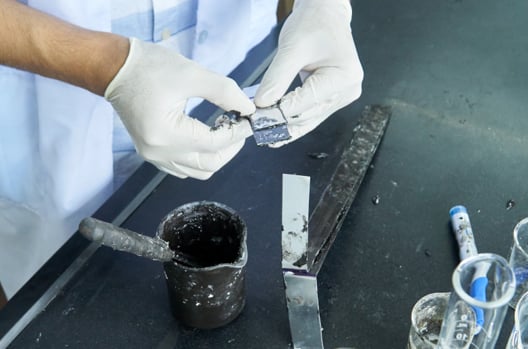
Photo Courtesy: James Dyson Award 2021
Compared with chemical-based sealants which emit an unpleasant and toxic odor, the product, which underwent a comprehensive toxicity test, ensures a safe and non-toxic environment for its users. It is also a response to the risks of disposing chemical-based products which could contaminate the environment.
Aside from these, the Pili Seal stands out with its 2-in-1 functionality. It offers a balance of elasticity as a sealant and strength as an adhesive, establishing flexible benefits not only for the aviation industry but also for various end-user sectors like construction, building, and roof applications.
The Philippines currently has no local manufacturing company for aviation sealants, relying solely on imports from other countries or regions. Engineer Bantugon hopes that his innovation may become a catalyst for establishing a local aviation sealant manufacturing company in the country, as well as in strengthening the local aviation industry.
Soaring high in the Geneva Invention Exposition
The Pili Seal serves as a testament not only to the rich bounty that the Philippines’ natural resources has to offer, but also to the extraordinary and promising innovations that Filipino experts could bring into the global stage.
Engineer Bantugon explains the brief etymology behind his product invention’s name. He cited that the choice of ‘PILI seal’ is deeply rooted in the Filipino translation of the word Philippines, Pilipinas, where the word PILI serves as the initial root.
“Consequently, the nomenclature PILI Seal symbolizes not only its indigenous sourcing but also its intrinsic connection to our nation (PILIpinas), underscoring its creation by a PILIpino Inventor,” he quoted.
True to his advocacy and aim, Engineer Bantugon showcased Filipino excellence as his Pili Seal was consistently recognized as an outstanding invention in multiple events, award-giving bodies, and competitions both in the local and international scene. It also achieved a historic milestone as it became the fastest granted patent.
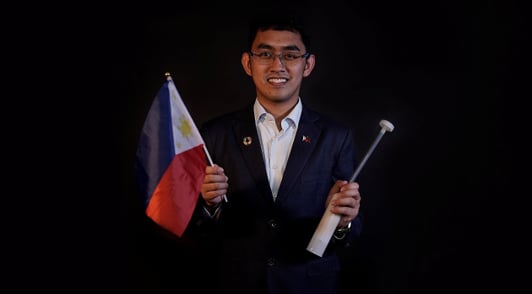
This includes the James Dyson Award in 2021, Swiss Innovation Prize Competition 2023, and the OCBC Global Sustainability Innovation Challenge 2023. It was also recognized as ‘Innovation Champion’ in the 2023 Culminating Event of DOST-TAPI’s Approved Invention, Innovation, and Technopreneurship Proposals.
The Pili Seal will also be among the Filipino innovations which will be given center stage at the 49th International Exhibition of Inventions in Geneva, Switzerland.
He views this as an opportunity to establish collaboration with organizations or companies, to secure funding or investment, and to acquire mentorship. Furthermore, he also aims to bring the whole Philippines and farming community with him, as he believes that the event also serves as a platform for showcasing the vital role of local farmers in the fields of invention, innovation, and research.
Taking flight with DOST
As he soars greater heights in the international exhibition, Engineer Bantugon also states his utmost gratitude to DOST and DOST-TAPI for its continuous support and assistance in showcasing his invention.
“As one of the Philippine delegates in this upcoming International Exhibition of Inventions in Geneva, personally, I am deeply appreciative of the opportunity provided by DOST and DOST-TAPI. This global opportunity will allow me to not only showcase my innovativeness as an Inventor and represent my country but also to highlight a groundbreaking invention stemming from my humble beginning as the son of a local farmer in the Philippines,” Engineer Bantugon said.
The Pili Seal is funded by the DOST-TAPI through its Grants and Assistance to Leverage Innovations for National Growth (GALING) program, which provides grants to inventors to help them with prototype development and product validation.
It is also one of the National Invention Contest and Exhibits (NICE) winners, wherein it was entitled to a travel assistance that will help it participate in international fairs and exhibitions, invention contests and expositions, pitching events, and other similar activities which may help in its promotion.
Sealing a promising future
Engineer Bantugon embarks in an endless pursuit for the improvement of his PIli Seal innovation. He seeks to introduce it not only to the field of aviation but also to other transportation industries and sectors including the automotive, marine, packaging, industrial assembly, electrical and electronic fields.
Recalling his farming roots, he hopes to seal a promising future not only for his innovation but also to local farmers in the Philippines. He aspires to empower the sector by offering them new streams of income and opportunities, citing more than 13,000 pili farmers and producers in the Bicol region who can benefit from the initiative.
“Allow your life to be an instrument of blessing not only to other people, but also to the community, nation and environment. It is similar to education and knowledge- something to be shared so that many people can be blessed, as you become a vessel of blessing to them,” he stressed.
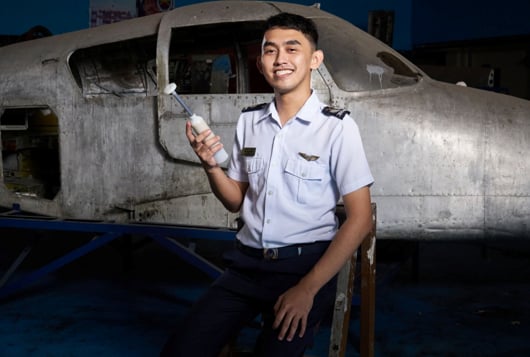
Photo Courtesy: James Dyson Award 2021
The Pili Seal serves as a testament that development and sustainability could meet and even soar to greater heights. As it takes flight to the global stage, the Filipino innovation proves that what we may consider as ‘waste’ or discarded materials, could become trailblazers that would seal a promising future and greener skies for the generations to come.
** This feature is a part of the "Shape the Future" campaign, highlighting nine Philippine inventions featured in the 49th International Exhibition of Inventions Geneva (IEIG) on April 17-21, 2023. Competing for gold awards, these innovations also aim to promote local technologies for potential international technology transfer and commercialization.


